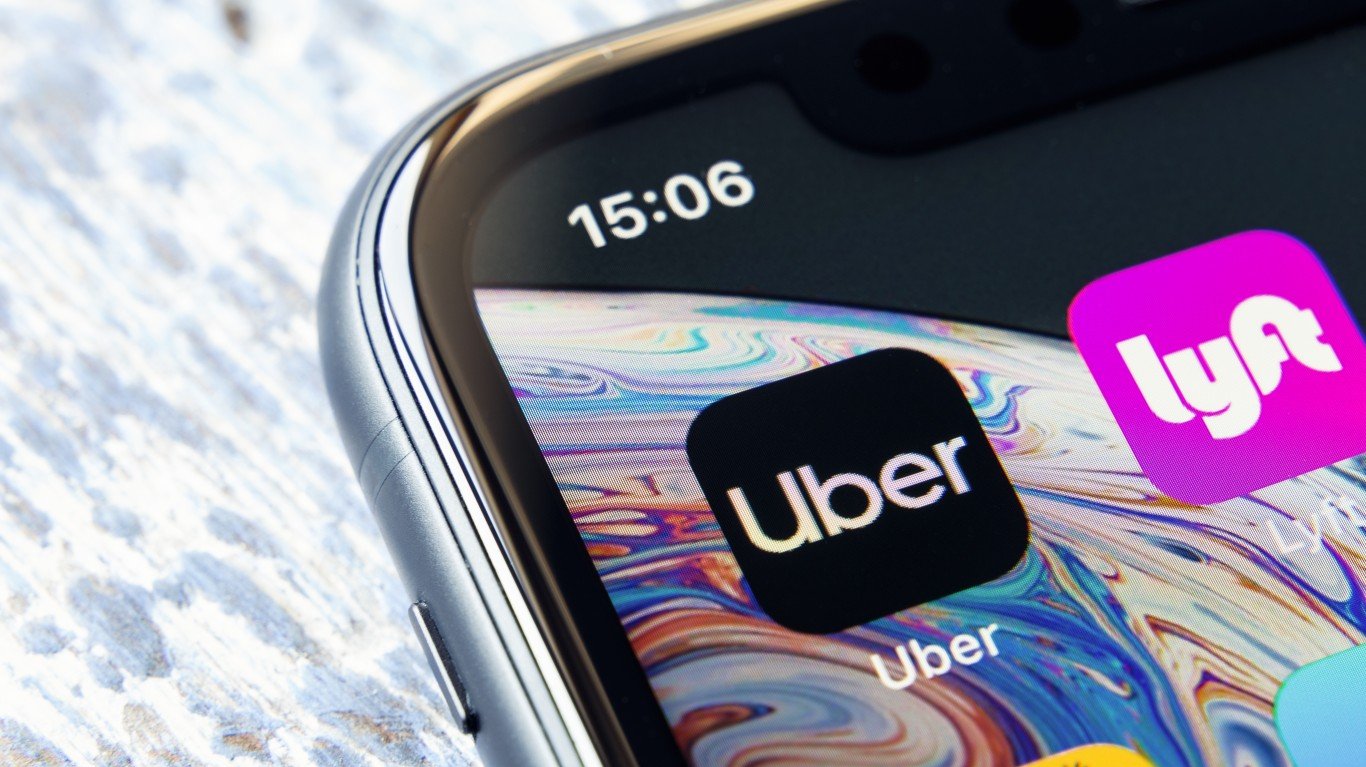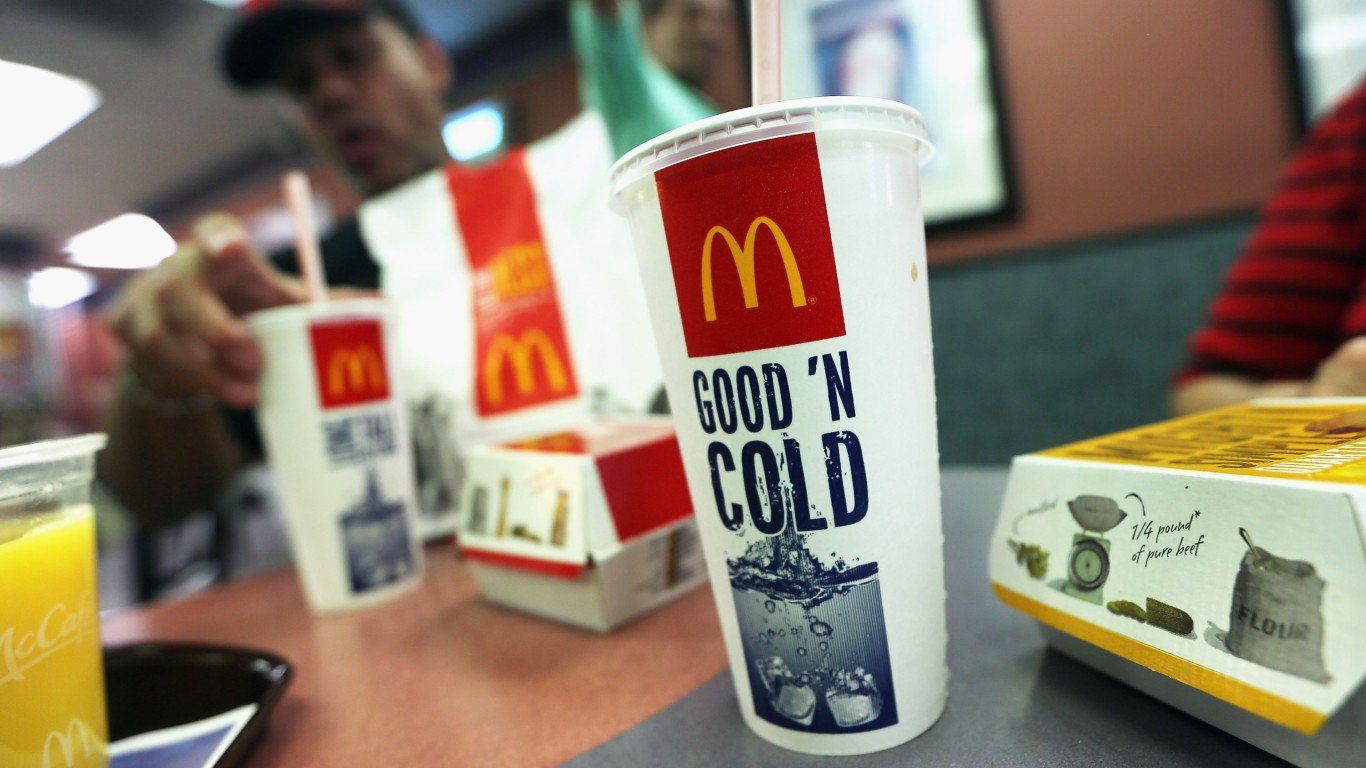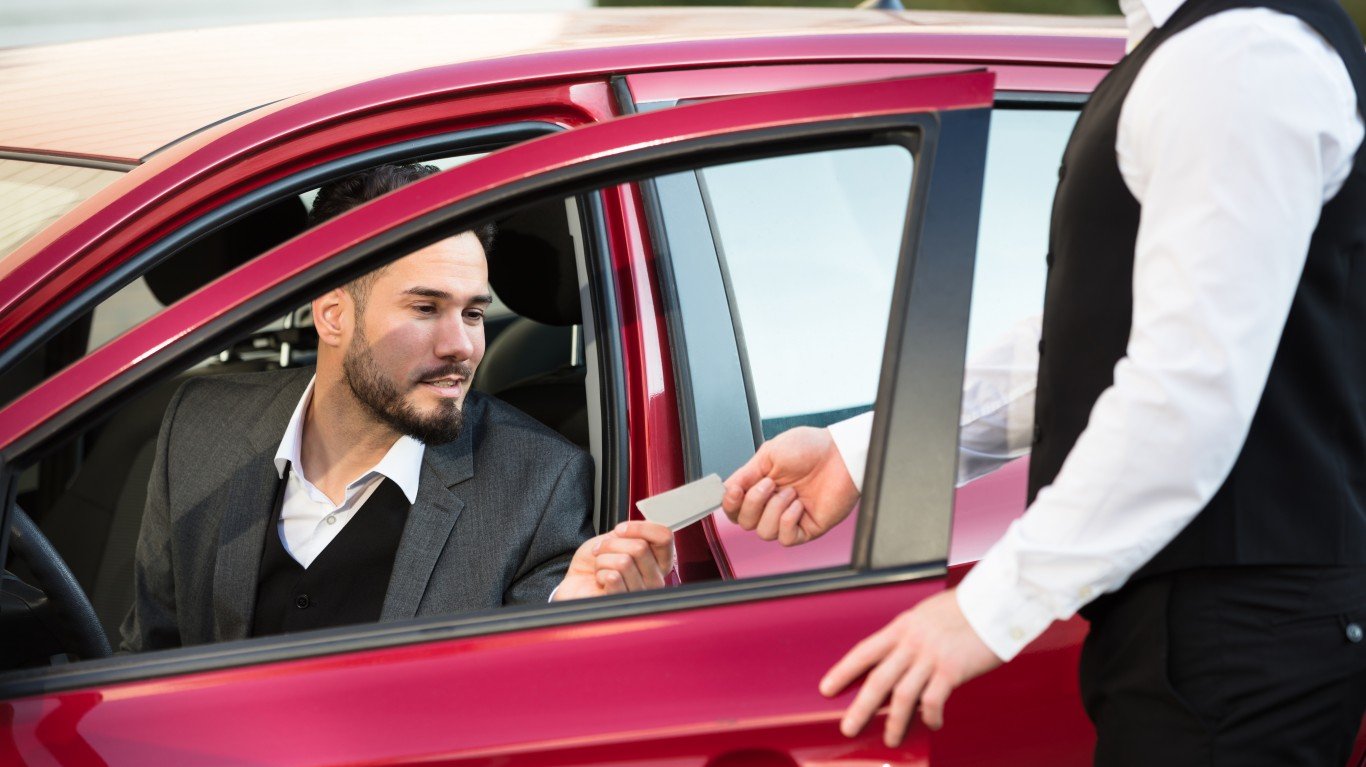

San Francisco-based Uber Technologies (NYSE: UBER) has been on the upswing since shares bottomed in March. Although Uber stock has not recovered fully, the company is making big strides in other areas, namely its path to profitability.
This ride-hailing service has been at the center of attention since it began pursuing an acquisition of the food delivery business Grubhub Inc. (NYSE: GRUB). But there are obstacles that stand in the way of this merger — really big regulatory obstacles.
Despite complications with the potential Grubhub acquisition, Uber’s stock market performance has been aided by signs of improvement in its rides business.
Uber Rides
At a recent conference organized by Bank of America, Uber CEO Dara Khosrowshahi pointed to a slight recovery in its rides business in the month of May. Obviously, the coronavirus pandemic has had a huge impact on ride-hailing businesses, including rival Lyft, but a recovery appears to be in the works.
Lyft issued a similar update. The company noted that its rides increased about 26% in May from the massive drop in April. However, May rides are still down about 70% year over year.
As for Uber, its rides business showed an improvement in week-over-week numbers. Currently Uber’s rides are also down 70% year over year for the month of May. But this is better than April’s numbers, which saw a drop of 80% year over year.
Separately, Khosrowshahi said that the rides business in Hong Kong has recovered more than 80% from lows resulting from the coronavirus.
Uber Eats
Uber’s food delivery business has increased its reach over the course of the pandemic as consumers have stayed home and ordered more for delivery. Although there are still questions about the profitability of this business, a merger with Grubhub could quiet some concerns.
Khosrowshahi reiterated his high hopes for the business at the BofA conference, noting that the Uber Eats business had doubled year over year as of May.
This trend should be encouraging for investors. Management is looking to shore up the financials for the food delivery business, and the route appears to be through Grubhub. The acquisition of Grubhub could ultimately give Uber control of the U.S. food delivery market.
Monopoly or Not?
Both Uber and Grubhub appear to have an agreement in place for the acquisition, but regulators could block it on antitrust grounds. Four members of the Senate Judiciary Committee’s antitrust subcommittee have spoken out against the deal, a couple of whom carry some weight as former Democratic presidential candidates.
The senators wrote a letter to the Federal Trade Commission and Antitrust Division of the Department of Justice saying: “A merger of Uber Eats and Grubhub would combine two of the three largest food delivery application providers and raise serious competition issues in many markets around the country.”
The senators pointed out that the food delivery business is currently dominated by three companies: Grubhub (which also owns Seamless), DoorDash and Uber Eats. “The merger under negotiation would create a sector in which the top two players control 90 percent of sales.”
Signing off on this letter were Senators Amy Klobuchar (D-Minnesota), Patrick Leahy (D-Vermont), Richard Blumenthal (D-Connecticut) and Cory Booker (D-New Jersey).
Khosrowshahi rejected assertions that Uber Eats would dominate the industry. In fact, he sees the newly combined company as only controlling 48% of the market. He also argues that the market is growing at such a rate that there is more than enough to go around, and that no single company could dominate 90% of it.
One last rebuttal that Khosrowshahi gave was that none of the delivery companies are actually making any money. The margins are absolutely horrible across the industry, and there needs to be either consolidation or a rise in fees as a result. According to Khosrowshahi, reaching sustainability or profitability would require companies to make 15% of each order’s total in fees. Currently, they only make 12%.
While consolidation may be the best route for Uber Eats to reach profitability, political and regulatory opposition could stymy this deal. If the market were growing fast enough to accommodate all companies, that might not be an issue. However the senators are pushing the idea that the combined company would control 90% of the market and this could be an insurmountable hurdle.
On the other hand, if the deal does go through, Uber could dominate the delivery business. Ultimately, this would push up the timeline for its path to profitability. Right now there is uncertainty.
Essential Tips for Investing: Sponsored
A financial advisor can help you understand the advantages and disadvantages of investment properties. Finding a qualified financial advisor doesn’t have to be hard. SmartAsset’s free tool matches you with up to three financial advisors who serve your area, and you can interview your advisor matches at no cost to decide which one is right for you. If you’re ready to find an advisor who can help you achieve your financial goals, get started now.
Investing in real estate can diversify your portfolio. But expanding your horizons may add additional costs. If you’re an investor looking to minimize expenses, consider checking out online brokerages. They often offer low investment fees, helping you maximize your profit.
Thank you for reading! Have some feedback for us?
Contact the 24/7 Wall St. editorial team.
 24/7 Wall St.
24/7 Wall St.


